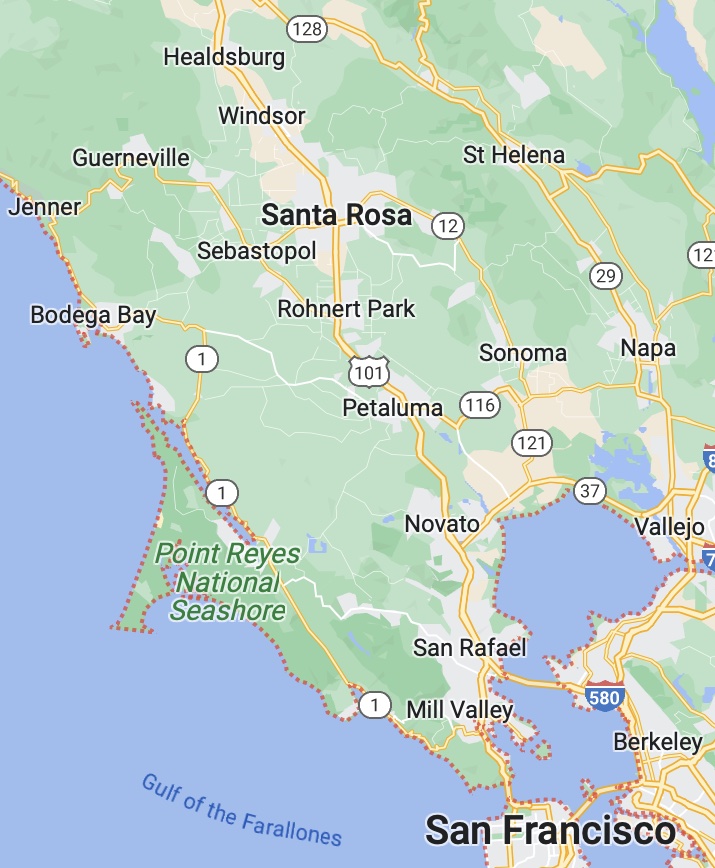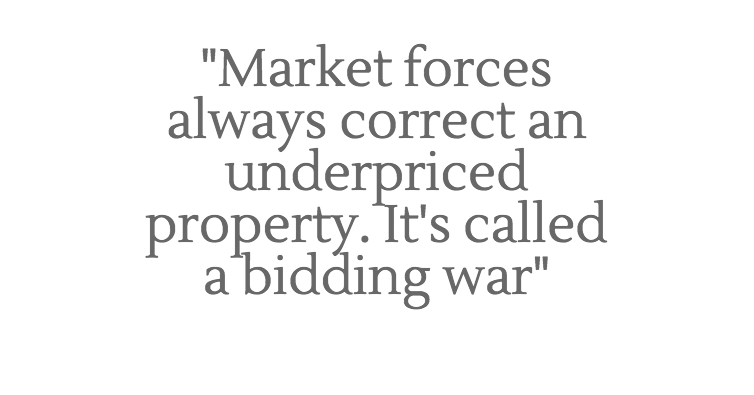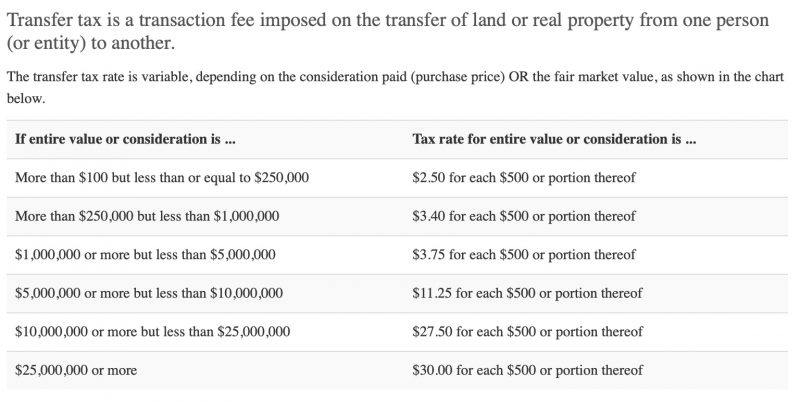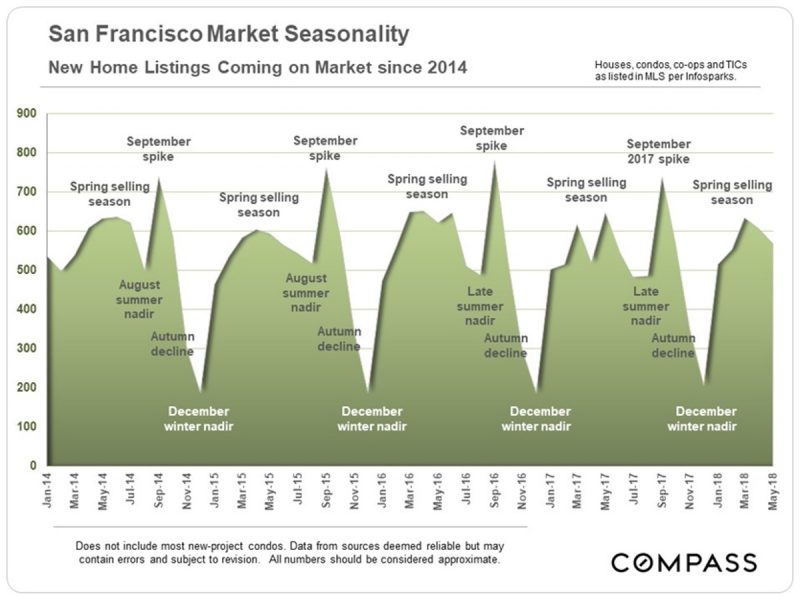The latest Sonoma County market dynamics in Healdsburg, Cloverdale, Santa Rosa, Geyserville, Windsor, and more.
Seller Tips
What is a contingency when buying a home in San Francisco?
If you’ve been looking for real estate in San Francisco, you have probably heard the term “contingency”; it means “dependence on the fulfillment of a condition”. In the world of SF real estate, a contingency is simply a period of time in which the buyer can investigate a property or mortgage loan while still protecting their deposit.
Contingencies are sometimes used for property inspections like a termite inspection. Other contingencies are for mortgage loan approval, appraisal, or the sale of another property. Sellers can have have contingencies too, like finding a replacement property, but buyer contingencies are more common.
In this very frenzied seller’s market, any buyer contingency can give the seller some pause when they are considering whether to accept an offer.
It can be challenging for buyers to protect their interests while still getting their offer accepted. As I’ve written about before, disclosures are important. Seller disclosure packages (complete with inspection reports) allow the buyer to be reasonably informed about the property at the outset before submitting an offer.
Regardless of disclosures, some buyers opt to roll the dice and waive all contingencies as a strategy to make their offer more attractive to the seller. Buyers should be aware that waiving contingencies is risky. As usual, it boils down to risk tolerance and of course every buyer (and every property) is unique. If you are considering buying or selling, let’s talk about how contingencies might impact you.
From SF to Wine Country (and everything in between)
For more than a decade, I’ve been incredibly fortunate to have had the opportunity to represent many home buyers and sellers throughout San Francisco. My real estate business has grown exponentially since that time as clients have called upon us to represent them in nearby counties. As a result, my team and I are excited to now include Marin & Wine Country in the areas that we serve.
In addition to San Francisco, we represent real estate clients in Healdsburg, Sonoma, Santa Rosa, Guerneville, Petaluma, Windsor, Occidental, Sebastopol, Napa, St Helena, Calistoga, Yountville, Novato, Mill Valley, San Rafael and surrounding towns. If you are considering buying or selling a home in Wine Country, Marin, or San Francisco, my team and I are here and ready to help!

San Francisco Real Estate Transfer Tax
Sellers have many things to consider when they prepare to sell their home or condo. One of the expenses that can surprise some sellers is the City & County of San Francisco Transfer Tax. This hefty tax is based on the sales price and is deducted from your proceeds by the escrow company. In transactions involving new construction properties, buyers are generally required to pay this tax. (Updated March 2022)
How much can you expect to pay in transfer tax?
When is the best time of year to buy or sell a home in San Francisco?
I am often asked about the seasonality of real estate in San Francisco. As it has been for a long time, we are in a seller’s market in SF however there are definitely some fluctuations throughout the year.
Sellers: The majority of the year is still very good for sellers, especially for single family homes, however the best time for sellers is in September/October when the weather is usually sunny and dry and fog is nowhere to be seen. This time of year is known as “San Francisco’s summer” even though it is really autumn everywhere else. Throngs of buyers are visiting lots of open houses on these sunny weekends, multiple offers are the norm, and sale prices that far exceed list prices are very common.
Buyers: If you are buying and want to have a shot at getting a (relative) bargain, you’ll want to do that in July/August or wait until November/December (but the number of available listings will be limited). The number of buyers that you’ll compete with are usually relatively low at this time, and the resulting number of offers and sale prices will also likely be in your favor. Of course, as with most things in San Francisco, each neighborhood and price range has it’s own unique nuances, so please let me know if you need advice on your particular situation.
4 tips for selling your home in San Francisco
It’s no secret that we’re in a seller’s market right now. Limited inventory, competing buyers, and multiple offers above list price seem to be the new normal. This will certainly change as the market goes through its normal cycle but for now things are clearly favoring sellers. Despite the current robust market, sellers still need to be very careful as they prepare to sell their home. Here are my suggestions for getting your home or condo sold for the highest price possible:
1. Your home should be vacant and staged.
It is important that buyers can envision themselves living in your home, instead of being reminded by visual queues that you live there. Staged homes typically fetch higher sale prices that non-staged properties. I understand that moving out and staging is sometimes not feasible, but at a minimum the home should be freshly painted, in reasonably good condition, clean and clutter-free.
 2. Do not overprice your home.
2. Do not overprice your home.
The best marketing in the world will not sell an overpriced home, even in a seller’s market. Most sellers have an almost irresistible desire to slap a sky high price tag on their home. Like most things in San Francisco though, real estate works a bit differently here compared with other cities. In the majority of SF neighborhoods right now, it’s customary to list your home a bit lower than you expect to actually end up with. Assuming the market demand warrants it, an offer date is set. That date is essentially an engraved invitation to buyers to make their highest and best offer. Real estate guru Barbara Corcoran said it best: “Don’t ever be afraid of underpricing your home, because market forces always correct an underpriced property. It’s called a bidding war, and you’ll be smiling when it starts.” If you’re worried that you’ll be forced to accept a low offer, don’t stress. In San Francisco, you are never obligated to accept any offer at any price until you actually accept it. There are many exceptions to this strategy, it does not apply to all homes, all sellers, or all neighborhoods. Carefully consult with an experienced broker on this.
3. Disclose. Disclose. Disclose.
Selling a home can be a litigious minefield. Buyers sometimes claim that they were misled by sellers who did not reveal all they knew about a home. There’s a simple way to avoid much of this risk though, since the only buyers who sue sellers are surprised buyers. If you are selling your home, you are required by law to document any material facts in advance of the sale. Disclose everything that might surprise a reasonable person if they were to learn it after the sale was over. Every home and neighborhood has some degree of imperfection, especially in San Francisco. A crack on a wall, chipped paint on a doorframe, an appliance that is not working properly, a constantly barking dog next door, the stolen bike from your garage last year, a noisy freeway nearby, etc. Will a list of negatives turn off a motivated buyer? Highly doubtful. In fact your thorough disclosures tell buyers that you are forthcoming and diligent. This potentially could result in a higher offer because buyers will likely feel more informed, more comfortable, and less apprehensive about the purchase.

4. Hire an experienced real estate broker who knows the local market.
Are you working with an experienced licensed broker? How long has he or she been selling homes? Can they provide testimonials from past clients? Do they have a professional web site and a solid online presence? This person is representing you (and probably your biggest financial asset) so make sure to do your homework. Of course, if you are thinking of selling, I’d love to have a chance to go over my proven marketing plan with you before you list your home.
I’ve represented many sellers over the years so I have plenty of additional tips to share. Just call or email me.
 415.971.5651
415.971.5651
 patrick@
patrick@
 SF Office
SF Office




